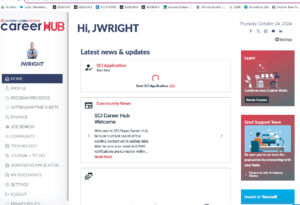If you\’ve ever considered a career driving a commercial vehicle like a truck, you may have asked yourself, \”Why is a CDL required?\”
Or you may be unaware of what a CDL is or how to obtain one. Acquiring a CDL is a critical component of starting your career driving a commercial vehicle. But before you get one, you need to understand what it is and why it\’s important.
Let\’s take a closer look at answering the question, \”Why is a CDL required?
Why is a CDL Required?
To drive any vehicle, you need a driver’s license. The purpose of this is to demonstrate that you understand how to drive a car. Not only that, but you\’ve also shown your ability to do so.
A CDL is no different – the main distinction is the type of vehicles it enables you to operate. First, it helps to understand CDL stands for. CDL stands for \”commercial driver\’s license.\” If you hope to operate a commercial motor vehicle (CMV), a CDL is a requirement. The type of CDL you\’ll require will depend on a number of factors – the type of CMV you\’re driving, as well as the weight of the vehicle (more on that below). A CDL proves that a commercial driver possesses the skill set necessary to successfully operate a CMV.
Additionally, the Federal Motor Carrier Safety Administration (FMCSA), made CDLs mandatory to operate specific types of commercial CMVs on April 1, 1992.
Requirements For A CDL License
While aspiring commercial drivers need to be aware of the presence of a CDL, they also need to understand the requirements they need to meet. It\’s not as simple as merely applying. Drivers will need to display a certain level of aptitude.
The FMCSA has a set of standards for licensing and testing to acquire a CDL. The testing requirements vary by state.
According to the requirements, drivers are asked to undergo state-delivered knowledge and skills tests. These tests are specific to the type of commercial vehicle they look to operate.
CMV drivers need to acquire a CDL if their operation of the vehicle involves intrastate, interstate, or any kind of foreign commerce.
Furthermore, a driver\’s CDL may have restrictions on it if they take a skills test in a vehicle without critical equipment needed in specific types of CMVs.
That means that if a driver is planning to take a skills test, they should do so in the same type of vehicle they\’re planning to use the CDL for.
This covers the basics for when a CDL is required, but there are more endorsements and restrictions commercial drivers should understand before attempting to obtain a CDL.
Understanding The CDL Requirements
Here are the various endorsements and restrictions for CDLs, along with their codes and the types of tests needed:
Endorsements
- T: triple/double trailers (knowledge)
- P: passengers (skills and knowledge)
- N: tank vehicle (knowledge)
- H: hazardous materials (knowledge)
- X: a combination of hazardous materials/tank vehicle (knowledge)
- S: school bus (skills and knowledge)
Restrictions
- L: if the driver doesn\’t pass the air brakes knowledge test
- Z: driver isn\’t authorized to drive CMV with full air brakes
- E: commercial driver takes skills test in a vehicle with automatic transmission
- O: if the commercial driver takes their skills test in a Class A vehicle with a non-fifth wheel connection, they\’ll receive this and be restricted from driving a vehicle with a fifth-wheel connection
- M: when a driver has a Class A license but receives a school bus/passenger endorsement for a Class B vehicle
- N: when a driver has a Class B license but receives a school bus/passenger endorsement for a Class C vehicle
- V: medical variances
Types Of CDLs
There are three primary types of CDLs. Each one has a specific set of requirements and features attached to it. Below and the primary types:
Class A
Requirements for Class A CDL includes vehicles (or combinations of vehicles) with a gross combination weight (or gross weight rating) of no more than 26,001 pounds (11,794 kilograms). This includes any towed units with a gross vehicle weight (or gross weight rating) of more than 10,000 pounds or 4,536 kilograms.
Class B
This class of CDL is for any single vehicle with a gross weight (or gross weight rating) of no more than 26,001 pounds (11,794 kilograms). This includes any towed units with a gross vehicle weight (or gross vehicle weight rating) of no more than 10,000 pounds (4,536 kilograms).
Class C
This class of CDL is for any single vehicle OR combination of vehicles not meeting the definition of Class A or B. A Class C vehicle is custom built to carry 16 or more passengers (this includes the driver) while moving material that 49 U.S.C. have deemed hazardous. Essentially, drivers need this CDL for vehicles that may be moving select toxic agents.
How To Get A CDL
There are a few critical steps involved in obtaining a CDL, including:
- Getting a copy of the Texas CDL manual.
- Determine exactly the kind of CDL you\’ll plan on operating.
- Choose the class you want to take to obtain your CDL.
- Obtain your commercial learner\’s permit (CLP).
- Obtain your CDL.
You must have your CLP no later than 14 days prior to the skills test. The state of Texas will issue your CDL.
What is the key to receiving your CDL without having to take any tests multiple times?
Partnering with an educational provider who can guide you through the process comprehensively and efficiently.
Southern Careers Institute can be that partner. SCI can help you earn your CDL with a flexible certification program you can complete as quickly as four weeks.
It can help prepare you for your career as a local truck driver, interstate truck driver, regional truck driver, and many more options.
You\’ll learn the skills needed to succeed. These include hands-on driving, safety precautions, backing, and turning. Since you need a CDL for this career, we can help you obtain it.
If you\’ve ever wanted to pursue a career in commercial driving, don\’t hesitate. Let SCI help you be in control of your life. To get started on your path with commercial drivers training in Texas, contact us today!
Sources
https://www.fmcsa.dot.gov/registration/commercial-drivers-license
https://www.fmcsa.dot.gov/registration/commercial-drivers-license/drivers#Classes-Licenses-Commercial-Learners-Permits
https://www.fmcsa.dot.gov/registration/commercial-drivers-license/how-do-i-get-commercial-drivers-license
https://www.fmcsa.dot.gov/registration/commercial-drivers-license/drivers#Endorsements-Restrictions
Blog Disclaimer: Information stated in this blog is for general information purposes only. SCITexas.edu does not assume or guarantee income earning potential or salary expectations based on the programs offered at Southern Careers Institute. Career and program information stated in this blog does not guarantee that programs and specifics are offered at Southern Careers Institute.












